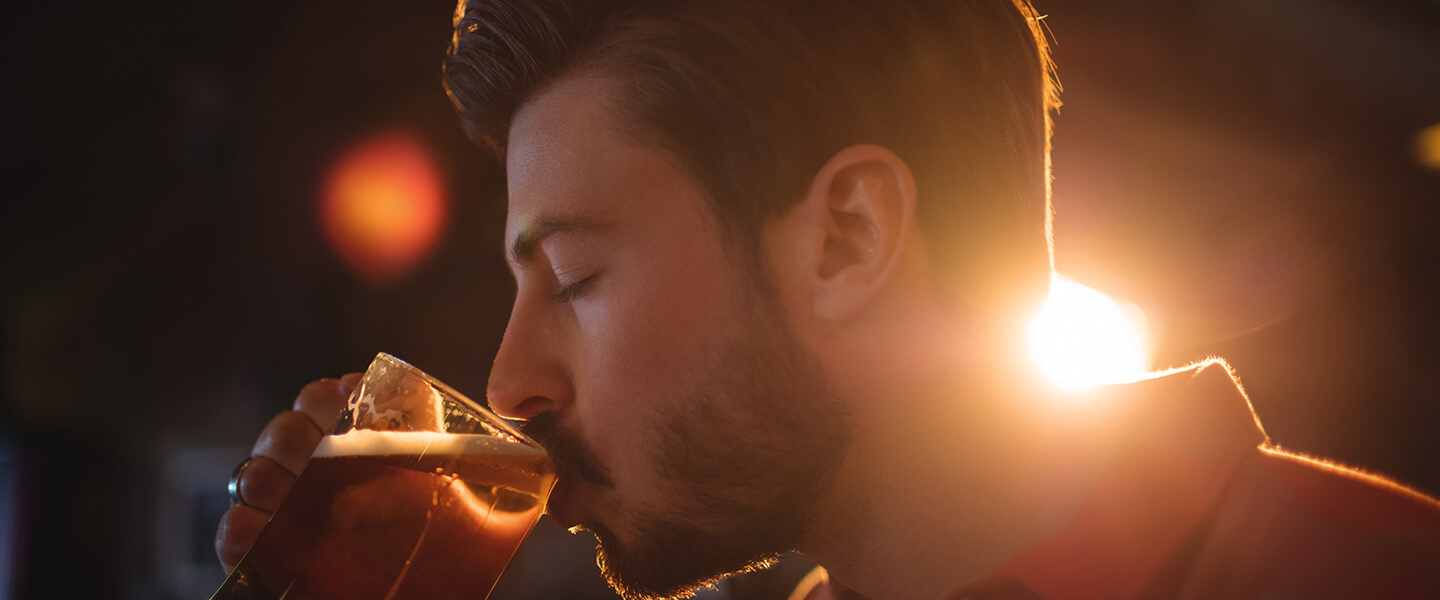Alcohol Use Worsens Bipolar Symptoms, Study Finds
Alcohol Use Worsens Bipolar Symptoms, Study Finds

Bipolar disorder (BD) is characterized by extreme mood swings. About half of people with BD also struggle with alcohol use problems. Both conditions are harmful on their own, but when they happen together, the problems can be even worse.
Still, the interplay between alcohol use and bipolar disorder is not well characterized. New research examined the relationship between alcohol use and bipolar disorder in one of the largest studies following a group of people with bipolar disorder over time.
A team that was led by 2022 BBRF Young Investigator Sarah Sperry, Ph.D., and Audrey Stromberg, both of the University of Michigan, along with 2018 BBRF Young Investigator Ivy Tso, Ph.D., of The Ohio State University, studied how alcohol use impacts the ups and downs of bipolar disorder and everyday life. They analyzed data from 584 people with BD participating in the Prechter Longitudinal Study of Bipolar Disorder, which has been collecting data since 2006. Their work was published in JAMA Network Open.
As described by the National Institute of Mental Health, bipolar disorder causes unusual shifts in mood, energy, activity levels, and concentration. These fluctuations can make it challenging to maintain routines, hold jobs, and sustain relationships. To study how these factors might change with alcohol use, the study collected information about each participant’s alcohol use, depression, mania or hypomania (periods of elevated mood and increased energy), anxiety, and functioning every 6 months for at least a 5-year period.
The researchers also determined whether participants had bipolar disorder type I (BD I), which involves at least one manic episode (severe mood disturbances with symptoms like extreme euphoria, inflated self-esteem, decreased need for sleep, and rapid speech), or bipolar disorder type II (BD II), which involves at least one hypomanic episode (elevated mood of lesser intensity than in BD I), increased energy, and at least one major depressive episode.
When they were enrolled in the study, 42% of participants had alcohol use disorder. Participants with BD II were more likely to continue heavy drinking than those with BD I. Individuals taking benzodiazepines were less likely to maintain high levels of alcohol consumption compared to those not taking these medications. Antipsychotic use was also associated with less alcohol use. However, individuals using antidepressants tended to have greater variability in alcohol use.
“These medication-related findings emphasize the need for careful consideration of medication regimens in managing patients with BD who drink alcohol,” noted Dr. Sperry.
The study also found that drinking above one’s typical amount was associated with heightened symptoms of mania or hypomania. This connection was stronger for people with BD II compared to those with BD I. Importantly, experiencing manic or hypomanic episodes didn’t cause increased alcohol use.
The research identifies a clear link between increased alcohol consumption and worsening symptoms of depression and mania. Interestingly, however, while drinking more often led to poorer mental health, experiencing more depressive or manic episodes did not cause people to drink more. Excessive alcohol use also negatively impacted job performance but in this study did not affect other areas of life, and problems at work did not cause people to drink more.
“We would have expected that increased affective symptoms would have been associated with greater alcohol use over time. However, we found that the opposite (i.e., increased problematic alcohol use) was associated with subsequent worsening of depressive and manic or hypomanic symptoms,” Dr. Sperry notes. That pattern was consistent across individuals, and did not appear at random.
This is the first study that examines and shows differences in alcohol use between bipolar disorder subtypes BD I and BD II. The conclusion that alcohol use may contribute to mood instability and functional impairment is consistent with previous studies showing that people with both alcohol abuse and bipolar disorder face significant challenges—longer and more difficult alcohol withdrawal, higher treatment costs, impaired daily functioning, increased risk of suicide, and poorer overall health.
Importantly, most treatments for bipolar disorder don’t address alcohol use.
“Patients with BD may benefit from reduced alcohol consumption if their treatment goals include improving work functioning and/or reducing mood symptoms, complemented by other skills to prevent future problematic alcohol use,” Dr. Sperry says. More research will be needed to determine exactly what kind of alcohol use treatment would be optimal for those with bipolar disorder.
The team also included: Melvin G. McInnis, M.D., a 1999 BBRF Independent Investigator and 1992 BBRF Young Investigator.




